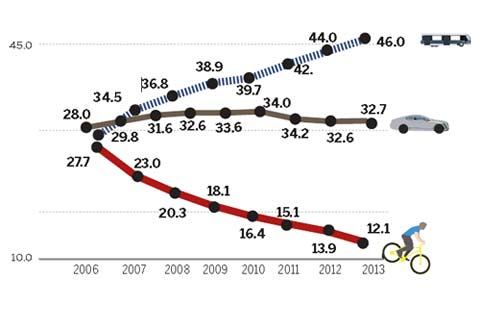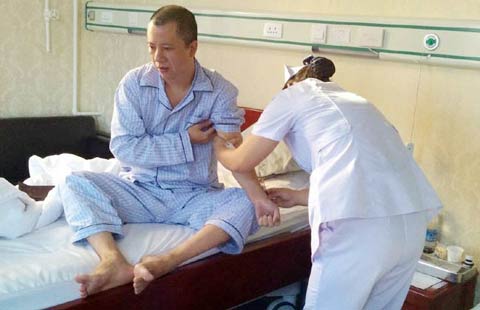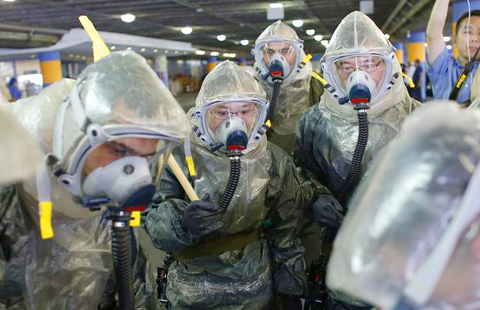Corruption in media needs to be stamped out with decisive steps
Updated: 2014-09-16 09:47
By LI YANG(China Daily)
|
|||||||||||
Although the media administration strictly bans this practice and stipulates that local branches can only do reporting work, the branches may find ways to circumvent the auditing of the authority. Making money has been an important task for them for a long time.
Were it not for the special inspection team, Xinhua's case would not have been exposed, because local governments try to maintain good relations with the central media's branches, which are regarded as messengers directly connecting senior State leaders.
There are reasons behind this phenomenon.
On one hand, the media administration still relies on government rules and policies to regulate the fast-changing media industry. The lack of a rule of law makes the rumormongers and blackmailers fearless. Thus, once they have mastered the media outlets, they acquire a channel to translate the media's influence into personal gain.
Bad money drives out good money. Good media suffer from the lack of rules, but bad ones boom.
On the other hand, when some companies and government departments make mistakes in terms of the public interest, the irresponsible watchdogs do not address the errors in time. Or, they do not find any mistakes at all.
It is usually the media that find the mistakes first and develop them into a scandal or a hot topic. The fastest way to kill a report and sway public opinion during a scandal is to pay the media in the form of an advertising fee. Many enterprises and governments include publicity fees in their budgets to quench any fires in the media.
The low wages paid to reporters and editors are another important cause of media corruption. The average monthly salary of a journalist working three years in Beijing and Shanghai is about $1,000 to $1,500, an amount far from enough to allow them a decent standard of living. And even if they work another 10 years as a journalist, their income will not increase as much as it would in other careers.
Some journalism professors term the young reporters and editors who quit their media jobs after several years "journalist migrant workers".
The media have become a training ground for other professions.
The police and central authority's inspection teams are not enough to address the media's corruption.
To some extent, the issue is an intersection of many problems within Chinese society, government and the market.
China should have a press law that could be the foundation for carrying out the rule of law in media.
As Chinese society becomes more pluralistic, the media should also play a role as an effective public sphere for reflecting the fast-changing society and provide channels for different interest groups to communicate their opinions.
Without a media ruled by law, it is hard to organize such a responsible public sphere for constructive discussion and communication.
A rule-of-law media landscape not only guarantees the people's right to say and to know, but also creates a fair environment for competition among media.
Related Stories
News website staff face extortion probe 2014-09-05 08:40
New facts emerge in media 'blackmailing' case 2014-09-11 14:56
Vaccine maker alleges website's employees attempted blackmail 2014-09-12 07:38
Website taken down after extortion charge 2014-09-12 21:46
Business news website's license revoked over extortion allegations 2014-09-12 21:19
Today's Top News
China's door to open wider, Li says
Shanghai FTZ official removed
Actress stuck in nations' conflict
Space-based technology to help deal with disasters
How will Alibaba justify price?
Master Kong pork noodles made with tainted oil
Beijing to tighten foreign hiring requirements
Queen urges Scots to think 'carefully'
Hot Topics
Lunar probe , China growth forecasts, Emission rules get tougher, China seen through 'colored lens', International board,
Editor's Picks

|

|

|

|

|

|





